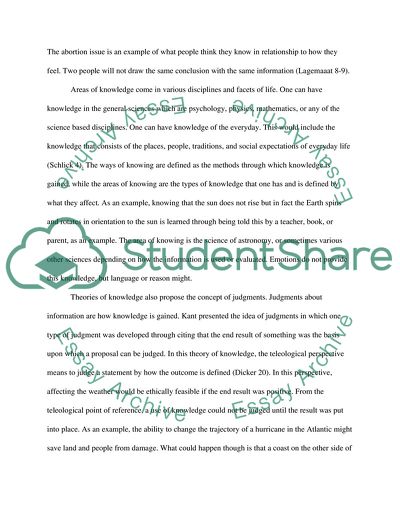Cite this document
(Possessing Knowledge and Applying it Ethically Essay Example | Topics and Well Written Essays - 1500 words, n.d.)
Possessing Knowledge and Applying it Ethically Essay Example | Topics and Well Written Essays - 1500 words. https://studentshare.org/education/1612632-ib-tok-essay-title-the-possession-of-knowledge-carries-an-ethical-responsibility-evaluate-this-claim
Possessing Knowledge and Applying it Ethically Essay Example | Topics and Well Written Essays - 1500 words. https://studentshare.org/education/1612632-ib-tok-essay-title-the-possession-of-knowledge-carries-an-ethical-responsibility-evaluate-this-claim
(Possessing Knowledge and Applying It Ethically Essay Example | Topics and Well Written Essays - 1500 Words)
Possessing Knowledge and Applying It Ethically Essay Example | Topics and Well Written Essays - 1500 Words. https://studentshare.org/education/1612632-ib-tok-essay-title-the-possession-of-knowledge-carries-an-ethical-responsibility-evaluate-this-claim.
Possessing Knowledge and Applying It Ethically Essay Example | Topics and Well Written Essays - 1500 Words. https://studentshare.org/education/1612632-ib-tok-essay-title-the-possession-of-knowledge-carries-an-ethical-responsibility-evaluate-this-claim.
“Possessing Knowledge and Applying It Ethically Essay Example | Topics and Well Written Essays - 1500 Words”. https://studentshare.org/education/1612632-ib-tok-essay-title-the-possession-of-knowledge-carries-an-ethical-responsibility-evaluate-this-claim.


